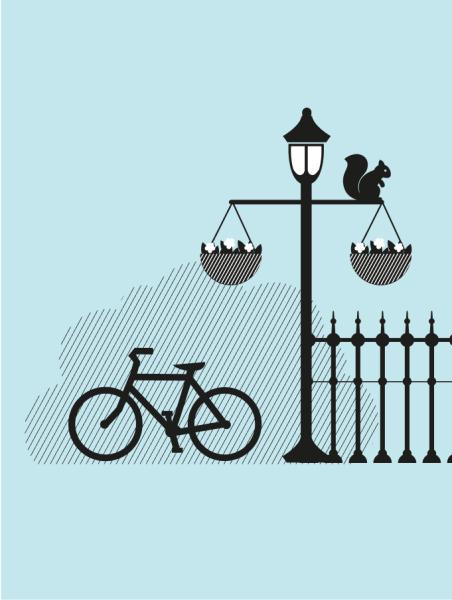Another Interest Rate Rise By the Bank of England: What's Next?

The Bank of England has again raised its interest rates, adding a further 0.25% for the second time in three months, taking the current base rate to 0.5%.
The first move in December saw the historically-low rate of 0.1% increase to 0.25%, as the Bank of England warned of more rises to come in a bid to curtail soaring inflation.
Why are interest rates suddenly changing?
The Bank of England's base interest rate serves as its official borrowing rate and the rate upon which other bank rates are influenced. Ultimately, the purpose of the base rate is to assist the economy in regulating UK inflation.
The UK government sets an inflation target for the Bank of England to work to, altering interest rates as they go to keep the country's economy balanced. From there, the Bank's Monetary Policy Committee (MPC) votes on whether interest rates should change.
The Bank of England has been warning that rising inflation is sure to lead to increased interest rates since last year, and continues to cite this as the cause.
However, surging energy bills are now expected to push inflation rates higher than previously anticipated, with predictions of 7% inflation as early as April. The initial forecast for inflation come April 2022 was 6%.
Officials commented further that rising gas prices were the primary factor in the upward pressure, with inflation rates expected to reach their highest levels since 1991. In addition, a pandemic-induced tight labour market, with wages rising to combat an increase in job vacancies is also a significant factor implicated in the price of goods going up and up.
Signalling a fading consensus over the appropriate action to be taken, of the nine members of the MPC, four voted to increase the base rate to 0.75% to tackle soaring inflation more aggressively. Nevertheless, the majority opted for a more measured approach, giving Brits a little more time to prepare for the inevitability of further increases.
What do these rate increases mean for you?
If you are primarily affected by interest rates due to deriving income from savings, then an increase to the base rate will be nothing but good news for you. Still, with the rate climbing so gradually, the wins will be modest for the time being.
For most consumers who rely on affordable and reliable mortgage rates to manage their household outgoings, the double whammy of rate and energy bill hikes could become significantly impactful.
Sarah Thompson, Managing Director of Mortgage Scout, comments, “With interest rates on the rise along with inflation it is the time to review your mortgage payments, and to make sure you take into consideration the day to day increases in food/petrol and energy.”
That said, the majority decision to stagger the rate rises is allowing some wiggle room when it comes to remortgaging while the going is still good. While rates are rising, they are still at record lows, and many great deals still exist on long-term fixed rates. Moreover, many property owners are now considering breaking their current-fixed term loans as they near completion, deeming it worth the penalty to refinance at a favourable rate while they still can.
If you are renting, it is possible that your landlord may choose to pass the effects of the interest rate rise onto you and look to increase your rent. That said, landlords are wary of doing this given the high average rental rates being currently asked across the country - there is only so much tenants can afford or are willing to pay.
_5203_953_85_32_o.jpg)
How will the housing market be affected?
In terms of the housing market in general, an increase in rates should take some of the heat out of the property market. After significant surges in 2021, the market can withstand a little dampening. While prices could fall, it is more likely that the ongoing growth will settle, as continued supply issues keep demand high. The long-standing imbalance between inventory supply and demand will help maintain some upward pressure on house prices despite a cooling of the market overall.
How high will interest rates go?
Given the Bank of England's slow-and-steady strategy when it comes to rate rises, it is unlikely that we will see any rises over 0.25% each time - sudden rate hikes can shock financial markets and cause more problems than they are attempting to solve. So, based on this anticipated trajectory, the base rate shouldn't surpass 1.25% in 2022.
As far as how much further it may climb, opinions vary. For example, a study by the Office for Budget Responsibility (OBR) suggests that rates could reach as much as 3.5% if inflation continues to soar. Still, financial market experts broadly agree that interest rates are more likely to peak at around 1.5% in 2023.
Thinking of remortgaging, buying, selling, or moving?
Let us help! Our partners at Mortgage Scout have experts on hand to assist you in considering your next move, be it remortgaging, buying, selling, renting, relocating or investing - we've got you covered. Find out how Mortgage Scout can help you here, or drop them an email on hello@mortgagescout.co.uk.
You can contact us on 020 7099 4000 or use our handy online property valuation tool
You may have to pay an early repayment charge to your existing lender if you remortage.
Your home may be repossessed if you do not keep up repayments on your mortgage.
There may be a fee for mortgage advice. The actual amount you pay will depend upon your circumstances. The fee is up 1%, but a typical fee is 0.3% of the amount borrowed.
Mortgage Scout is a trading name of LRG Financial Services Limited which is an appointed representative of Mortgage Advice Bureau Limited and Mortgage Advice Bureau (Derby) Limited which are authorised and regulated by the Financial Conduct Authority.
Registered Office: Crowthorne House, Nine Mile Ride, Wokingham, Berkshire, RG40 3GZ
MAB13205
Looking for advice?
If you're looking to let or sell your property, we can help. Get in touch with your local branch or book in for a property valuation.

Contact Us
Got a question, general enquiry or something else?
You may also like
Since we started in 1818 we have grown and joined one of the UK’s largest property groups, we can save you time and money by offering a range of services and expertise under one roof.





